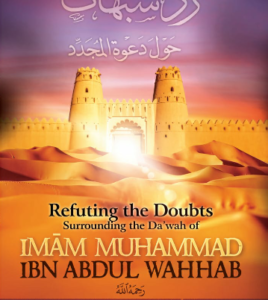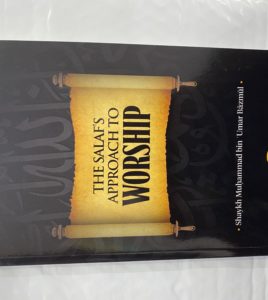How To Gain Knowledge
بسم الله الرحمن الرحيم
By al-‘Allammah Shaikh Saalih bin Fawzan al-Fawzān (حفظه الله)
Knowledge is not achieved merely through extensive reading or by accumulating books. It is gained by studying with the people of knowledge, it is acquired from the scholars. Knowledge is achieved, thus, by the scholars passing it on and it is not just by collecting books as some people think today.
Some people today collect books, reading from the books of hadīth, Jahr wat-Ta’dīl (science of assessing reliability), Tafsīr and the likes thereof. They claim that, with that, they have gained knowledge. However, this type of knowledge is not built upon a foundation, nor is it built upon principles, because it is not gained from the people of knowledge. It is a must, therefore, to sit in the circles of remembrance, with the teachers and scholars. It is a must that one is patient upon seeking knowledge.
~AND WHOEVER DOES NOT TASTE HUMILITY OF LEARNING FOR AN HOUR~
~IS TRAILED WITH IGNORANCE ALL OF HIS LIFE~
Patience is a must as knowledge is not gained by mere reading nor by gathering books etc, but by studying with the righteous scholars, the men of understanding and knowledge, those who give insight from the Book of Allāh and Sunnah of the Messenger of Allāh (صلى الله عليه و سلم). One should therefore tread this path of learning and take knowledge the correct way.
Allāhu ta’ala said:
“It is not from righteousness that you enter the houses from their rear entrances, but righteousness is the quality of the one who fears Allāh. So enter houses through their proper doors”
[Surah al-Baqarah 2:189]
Knowledge has correct doors (from which one enters) and carriers and teachers, so it is a must, O brothers, that you sit in study circles, whether it be in the masājid, schools, centres or colleges. What is important is that knowledge is taken from from the scholars so long as they are reachable and the situation allows it.
Those who split away and sit in their individual gathered libraries, not building a foundation or learning principle-based knowledge, will find themselves lost. It is a must to learn the religion of Allāh at the hands of the scholars. So there are two ways of acquiring knowledge:
FIRSTLY: That you take from reliable books, and particularly those which have been written by scholars known for their knowledge and trustworthiness, and sound in their Aqīdah – being free from any form of innovations and deviations.
It is imperative that the person, in taking knowledge from books, reaches the goal he set out for. However, in this are 2 obstacles:
1st Obstacle: That the person requires a lot of time and tough endurance and great effort so that he reaches that which he is aiming for in his search for knowledge. Often, many people do not give importance to this obstacle, especially since they see they have wasted much time without benefit. Therefore, laziness overcomes them and they become exhausted and bored, such that they are unable to obtain that which they set out for.
2nd Obstacle: That he who takes his knowledge simply from books, then his knowledge is mostly weak. It is not built upon principles nor rules. As a result of this, we find he has many mistakes. This is because he does not possess any principles nor any rules upon which he is able to build the different aspects of knowledge which are found in the Qur’an and Sunnah.
We find some people refer to a hadīth which is not mentioned in the authentic books of hadīth, and this manner is contrary to that which is from the authentic principles dictated by the people of knowledge. Then he takes this hadīth and bases his aqīdah upon it. Without a doubt this is a mistake, because the Qur’an and the Sunnah have principles upon which the different aspects of knowledge are based.
SECONDLY: From the ways to acquiring knowledge is that you take from a teacher who is reliable in his knowledge and religion, and this is from the fastest and most reliable manner for seeking knowledge. As with the first approach the student is open to deviation while he does not know, either because of his lack of understanding or inadequate knowledge or other than these reasons.
As for the second approach, then there is constructive discussion whilst taking knowledge and refuting (doubts) with the teacher. With this, many doors of understanding, verification and methods of safeguarding the authentic statements and refuting the weak statements are opened for the student. If the student was to combine the two approaches then this is more complete and perfect. So the student of knowledge begins with that which is important then moves on in order of importance. He starts with the short texts of knowledge before moving onto the extended full-length texts. He progresses from level to level, and does not progress to the next level until he is fully versed in the preceding level, such that his progression is sound and complete.
[Sources: Trails of Life by Shaikh Saalih al-Fawzān, translated by Abdulilāh ibn Rabah Lahmami ©2009/1430 Darasahab (UK) and The Book of Knowledge by Shaikh Muhammad bin Saalih al-‘Uthaymeen, ©Jan 2004, Invitation to Islam (UK)]
Trackbacks and pingbacks
No trackback or pingback available for this article.
 (267) 428-1723
(267) 428-1723








Leave a Reply